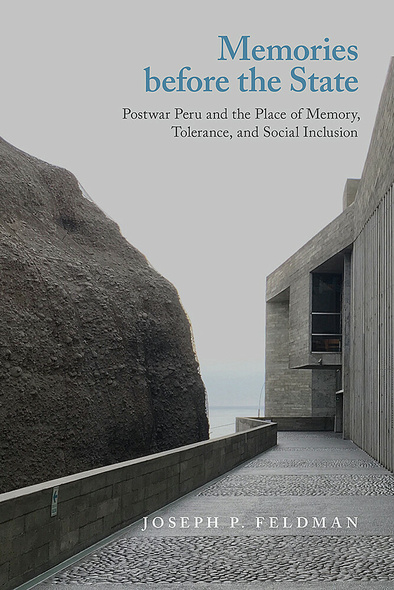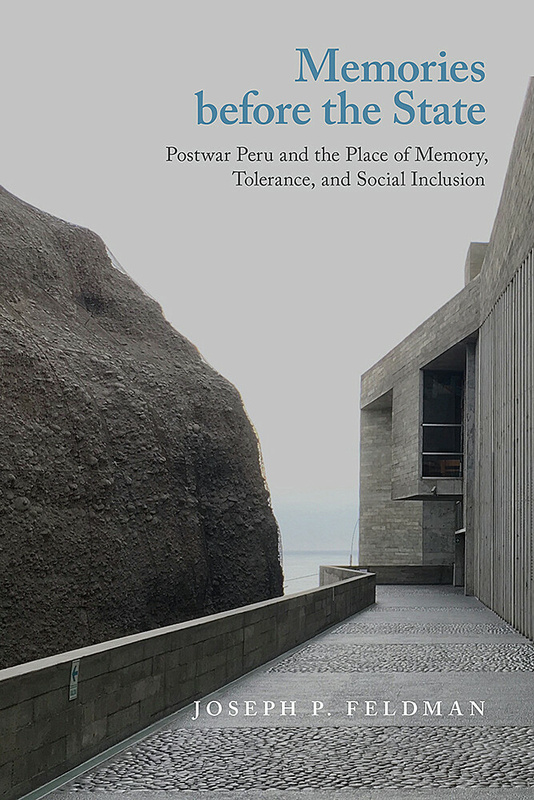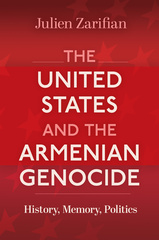
212 pages, 6 x 9
15 b-w images
Paperback
Release Date:13 Aug 2021
ISBN:9781978809512
Hardcover
Release Date:13 Aug 2021
ISBN:9781978809543
Memories before the State
Postwar Peru and the Place of Memory, Tolerance, and Social Inclusion
Rutgers University Press
Honorable Mention for Best Book Award from the Historia Reciente y Memoria Section of the Latin American Studies Association (LASA)
Memories before the State examines the discussions and debates surrounding the creation of the Place of Memory, Tolerance, and Social Inclusion (LUM), a national museum in Peru that memorializes the country’s internal armed conflict of the 1980s and 1990s. Emerging from a German donation that the Peruvian government initially rejected, the Lima-based museum project experienced delays, leadership changes, and limited institutional support as planners and staff devised strategies that aligned the LUM with a new class of globalized memorial museums and responded to political realities of the country’s postwar landscape. The book analyzes forms of authority that emerge as an official institution seeks to incorporate and manage diverse perspectives on recent violence.
Memories before the State examines the discussions and debates surrounding the creation of the Place of Memory, Tolerance, and Social Inclusion (LUM), a national museum in Peru that memorializes the country’s internal armed conflict of the 1980s and 1990s. Emerging from a German donation that the Peruvian government initially rejected, the Lima-based museum project experienced delays, leadership changes, and limited institutional support as planners and staff devised strategies that aligned the LUM with a new class of globalized memorial museums and responded to political realities of the country’s postwar landscape. The book analyzes forms of authority that emerge as an official institution seeks to incorporate and manage diverse perspectives on recent violence.
Engaging, accessible and captivating, Memories before the State draws a compelling and textured portrait of the politics involved in the construction of a national museum of memory and presents a nuanced examination of how memory is influenced by global discourses and local forces.
Focusing primarily on Peru’s single national museum dedicated to memory of the internal conflict, Feldman offers an analysis of contemporary memory politics in state-sanctioned spaces. His insights speak to wider debates on memorial museums globally.
A welcome contribution to memory studies. Feldman documents how liberal elites curate an official story of Peru’s internal conflict (1980-2000), framing what they believe their country needs to cope with legacies of mass violence.
New Books Network - New Books in Latin American Studies' interview with Joseph P. Feldman
Memories before the State is a valuable contribution to memory studies, and it will be beneficial for students and practitioners with interests in museums, human rights, and recent memory politics in Peru and beyond.'
As I read, I was captivated by Feldman’s compelling and detailed narrative. He takes the reader on a journey that complicates easy assumptions about the transformative potential of memory museums by showing us how, in multiple ways, they are embedded in institutional and political realities that often perpetuate social hierarchies and colonial histories that undergird the violence being memorialized in the first place.
Memories Before the State is an important contribution to literature on memory and the state, as well as to post-conflict memory studies in Peru and Latin America. Its insight on how memory is shaped by institutions, and perhaps more importantly how institutions are shaped by memory, should prove useful to educators and museum practitioners, as well of course to scholars, in the decades to come.
JOSEPH P. FELDMAN is a postdoctoral fellow at the Martin Institute and the Idaho Society of Fellows at the University of Idaho in Moscow, Idaho.
Preface
Introduction
1. Place, Memory, and the Postwar
2. Enacting Post-Conflict Nationhood
3. Yuyanapaq Doesn’t Fit
4. “There Isn’t Just One Memory, There Are Many Memories”
5. Memory under Construction
6. Memory’s Futures
Acknowledgments
Notes
References
Index
Introduction
1. Place, Memory, and the Postwar
2. Enacting Post-Conflict Nationhood
3. Yuyanapaq Doesn’t Fit
4. “There Isn’t Just One Memory, There Are Many Memories”
5. Memory under Construction
6. Memory’s Futures
Acknowledgments
Notes
References
Index







